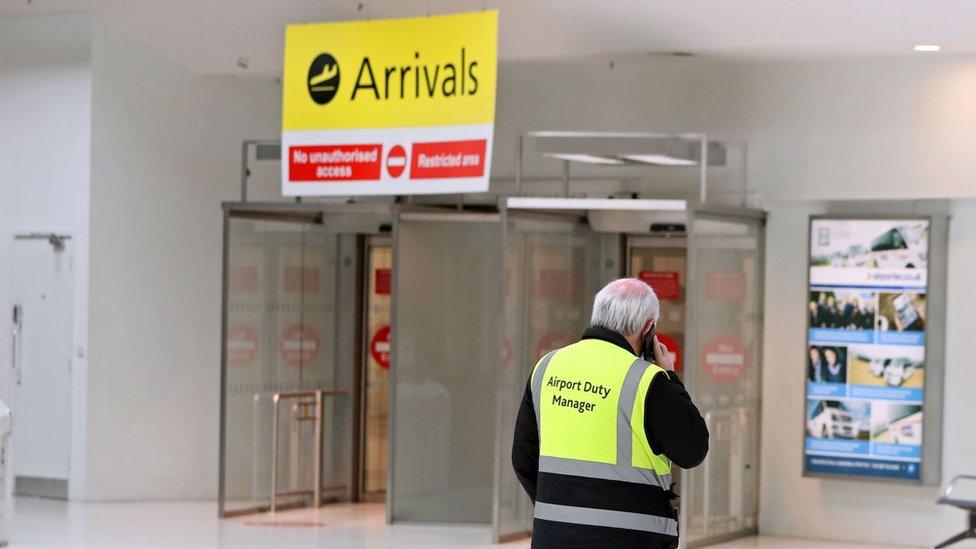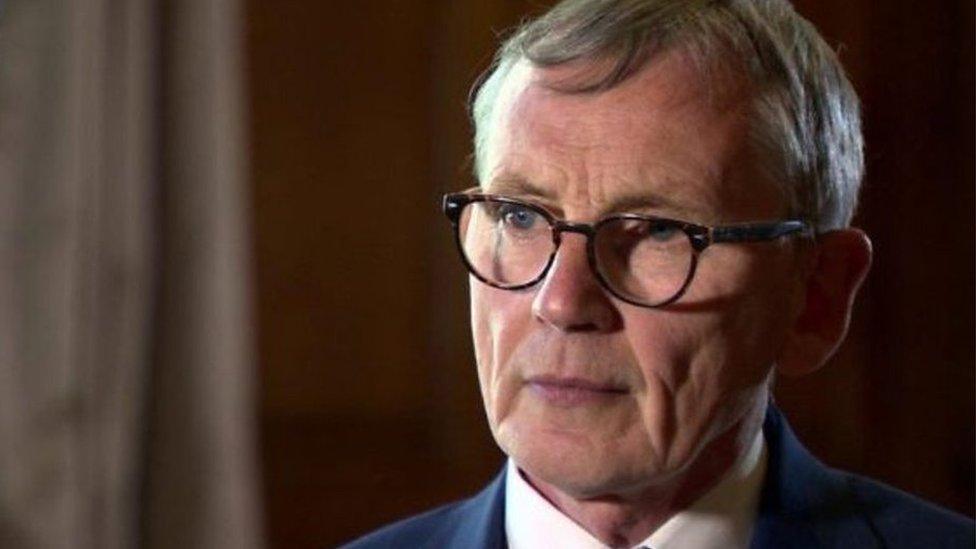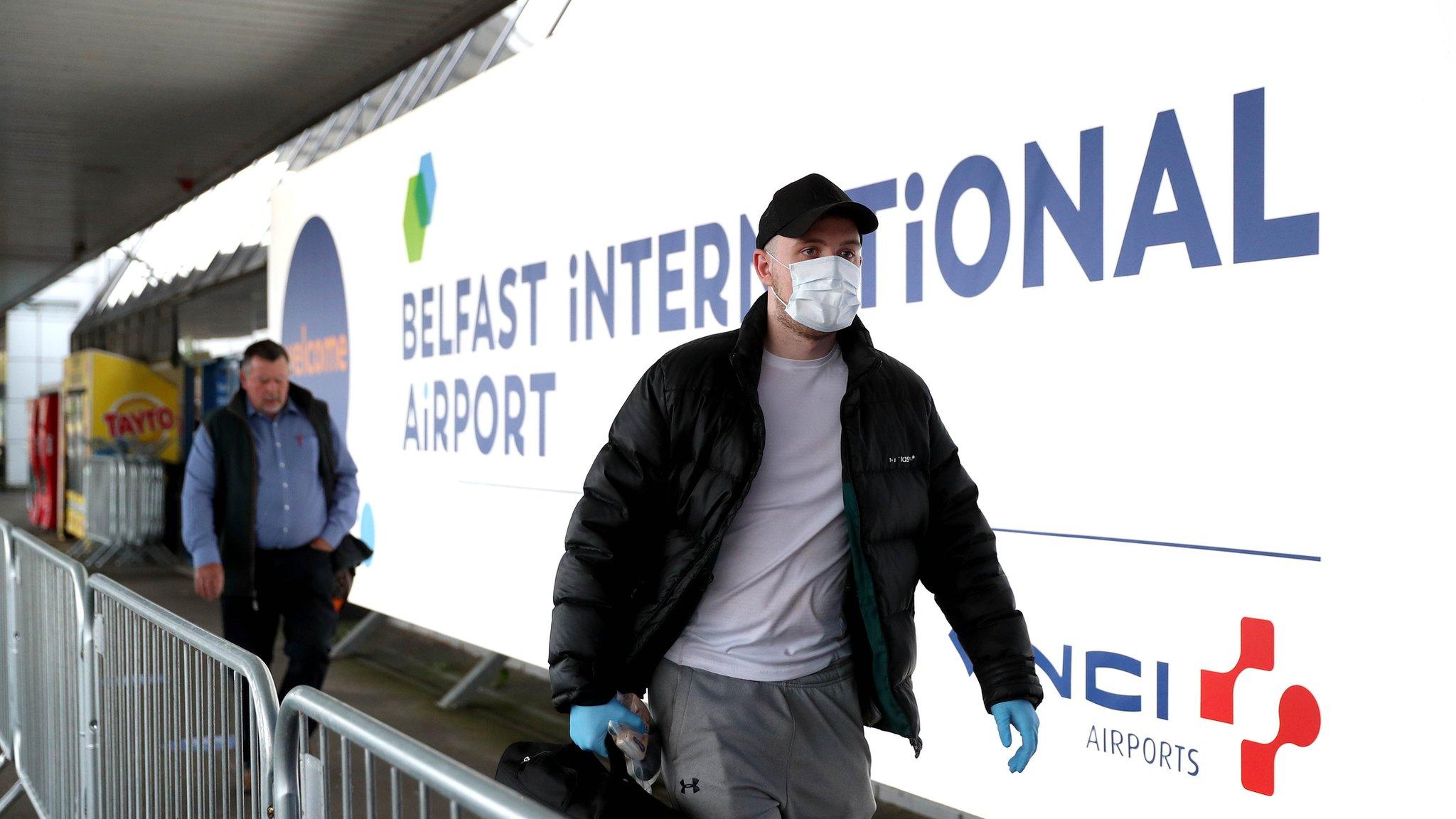Coronavirus: NI tourism 'runs risk of importing virus again'
- Published

Northern Ireland relaxed it quarantine rules for international travellers last week
Northern Ireland runs the risk of importing Covid-19 "all over again" after relaxing rules on foreign travel, a public health expert has said.
Prof Gabriel Scally from the Royal Society of Medicine said the current rules were "daft" after all the sacrifices made to curb the virus.
Since last week, travellers from more than 50 countries have no longer had to quarantine on their arrival.
It was agreed by Stormont ministers as part of their plan to ease lockdown.
However, Prof Scally told the Irish News, external that the island of Ireland could be "re-seeded" with the coronavirus due to the relaxation of quarantine rules.
Prof Scally is president of the Royal Society of Medicine's Epidemiology and Public Health section and is also a visiting professor of public health at University of Bristol.
"When you think of all the time and the effort and the money - and the poor people who have died and the people who are still affected by this virus - and here we are running the risk of importing it all over again, it is daft," he told the BBC's Nolan Show.

Prof Gabriel Scally questioned the continued operation of commercial flights
There have been a total of 839 Covid-19 related deaths in Northern Ireland according to the latest statistics from the Northern Ireland Statistics and Research Agency (Nisra) but the death rate has fallen consistently over the past nine weeks.
People can travel freely between Northern Ireland and the Republic of Ireland where quarantine rules are currently more restrictive, external.
By law, travellers arriving into the Republic from anywhere other than Northern Ireland must fill in a Covid-19 Passenger Locator Form and restrict their movements for 14 days.
However, the Irish government is set to identify a "green list" of countries on 20 July, which means that people arriving from those destinations will not have to self-isolate for two weeks.
Arguing for caution, Prof Scally said international travel and "personal tourism" increased the risk of spreading the virus again.
"It's not just where they're coming from" he said. "Everything they've gone through on that journey - going on a train to the airport; a busy air terminal perhaps and sitting on a plane."
Mandatory quarantine call
The professor also said it was "remarkable" that commercial flights from the US into Ireland were continuing.
The US has seen record numbers of new cases in recent weeks and the death toll has also started to rise in recent days.
Speaking on the same programme, Northern Ireland businessman Frank Shivers said he did not think the economy could afford to prevent American tourists from visiting.
"The risk to our economy is tremendous," he said.
"What we've got to realise is that if we don't get our economy moving, more people will die because we won't have the money for the NHS," Mr Shivers said.

Critics argue temperature checks are not an effective way to prevent the spread of Covid-19
"Potentially, more people could die from causes other than Covid."
Mr Shivers argued that some of the public health measures imposed on the tourism and hospitality industries were contradictory and nonsensical.
"We've got a scenario where you can go into a pub and as long as you're having a meal, you're somehow 'immune' to Covid - but you can't go in and have a pint."
He said technology was available to mitigate the risk from international travel and he suggested temperature checks and passenger screening at airports.
But Prof Scally warned many people who contract Covid-19 are asymptomatic and do not realise that they have the virus and are spreading it.
He said the "only safe thing to do" was to have a strict quarantine and testing regime for international travellers.
- Published10 July 2020

- Published8 July 2020
